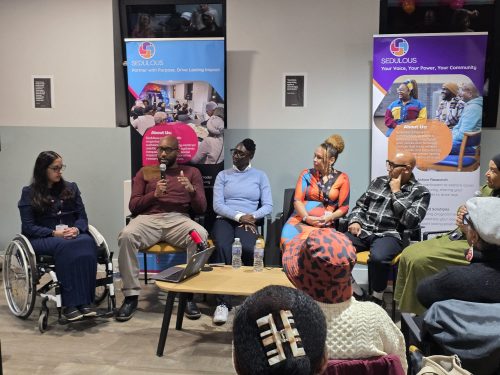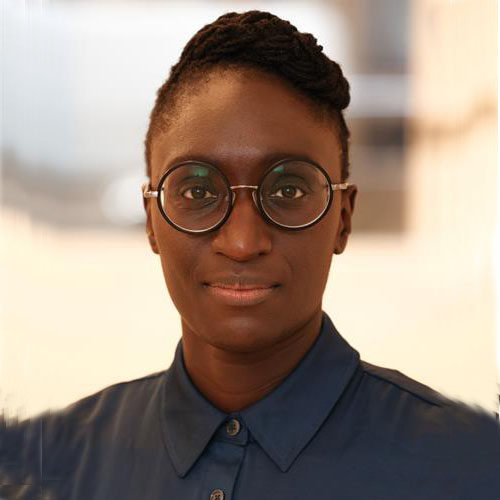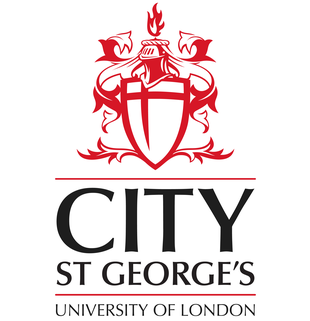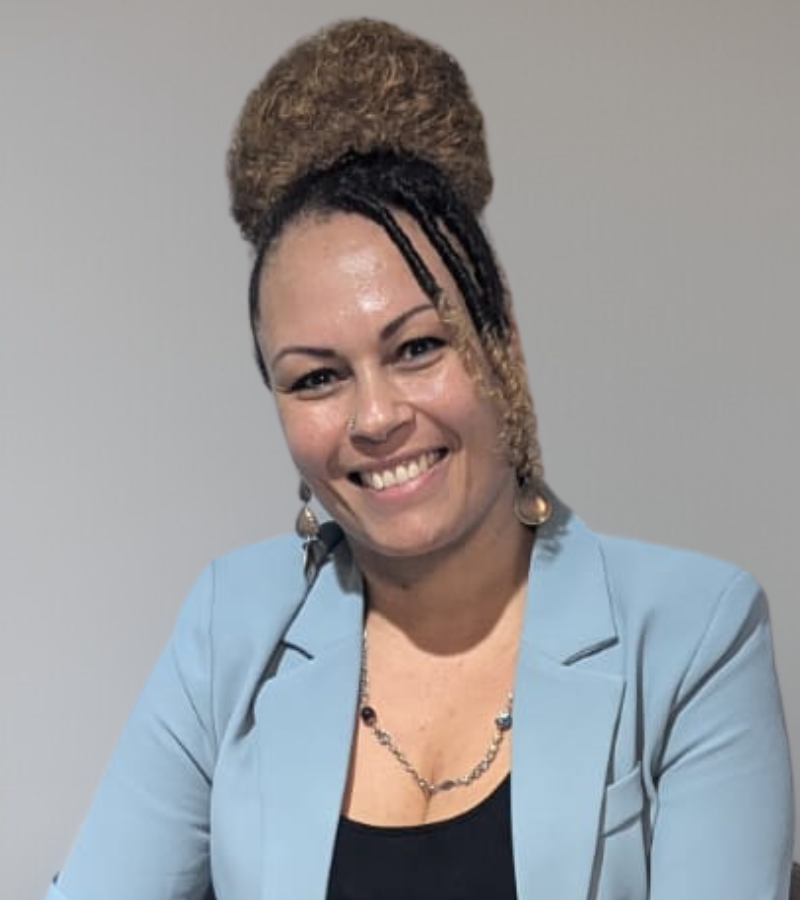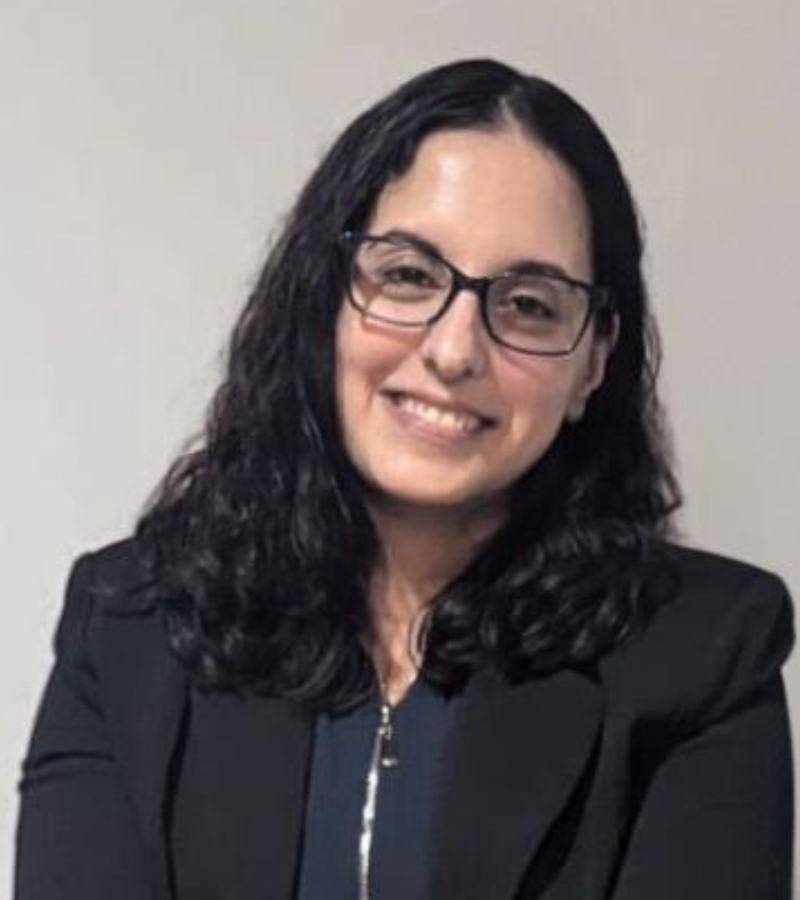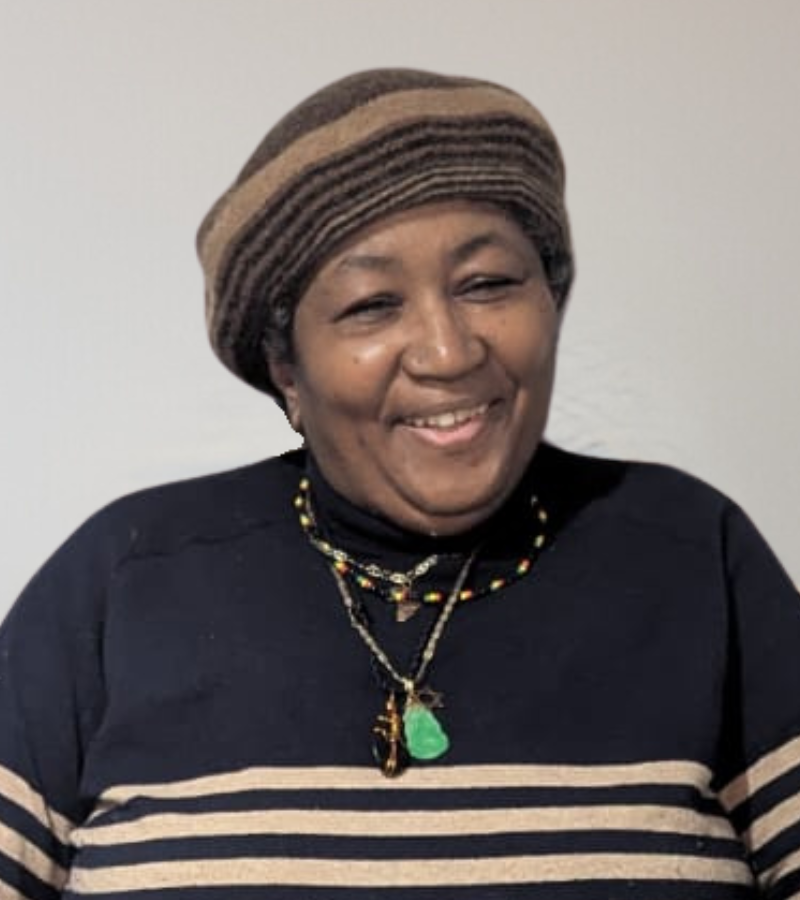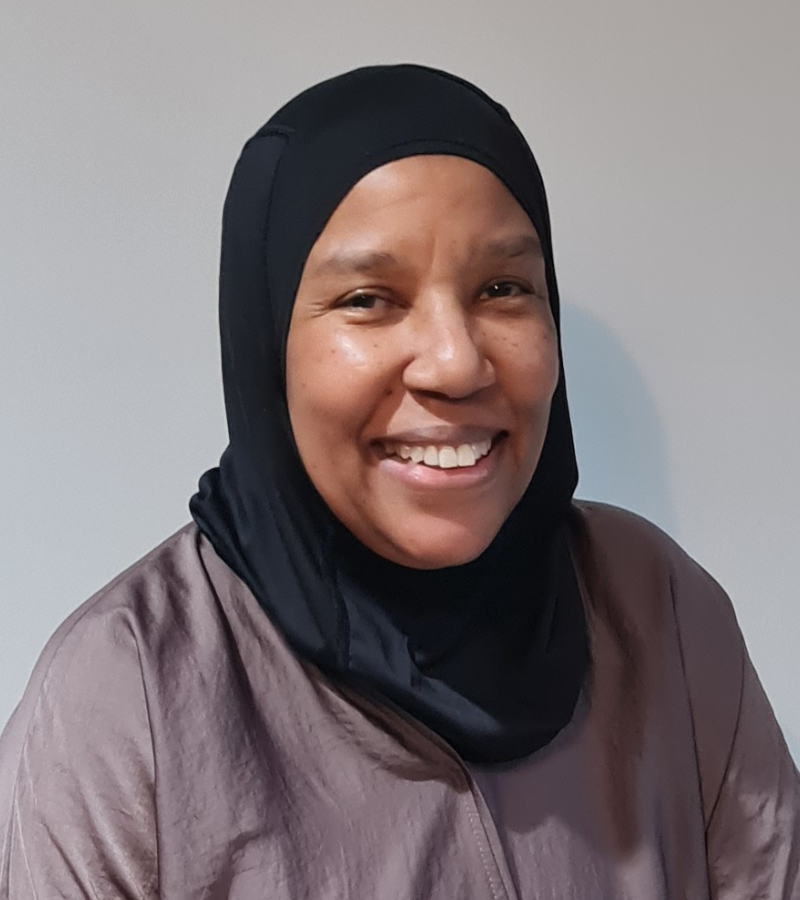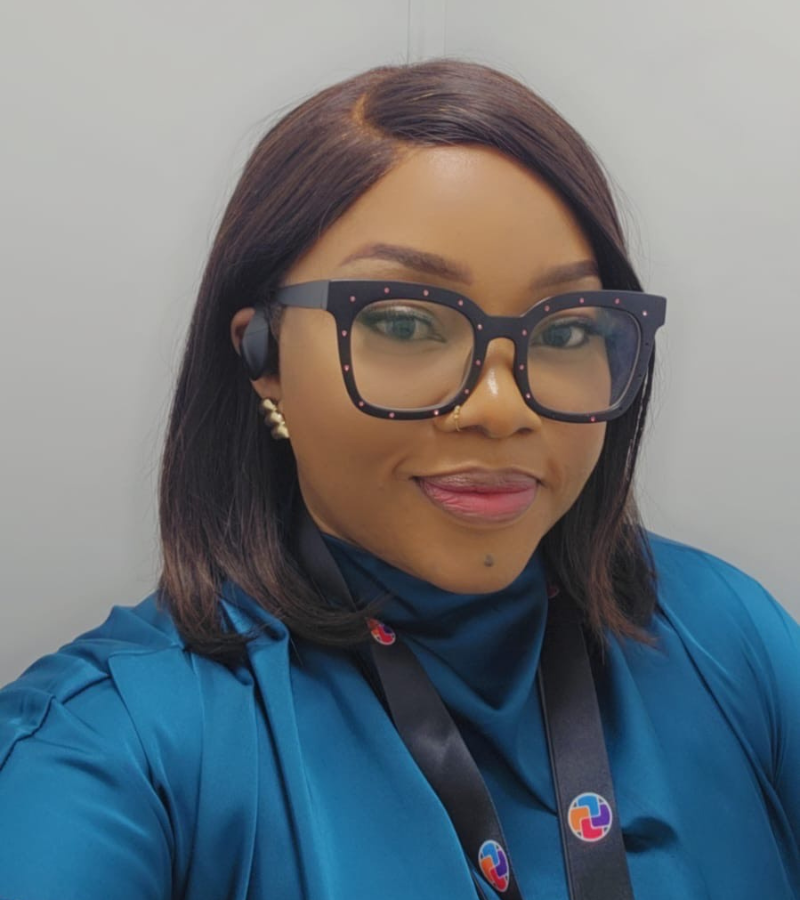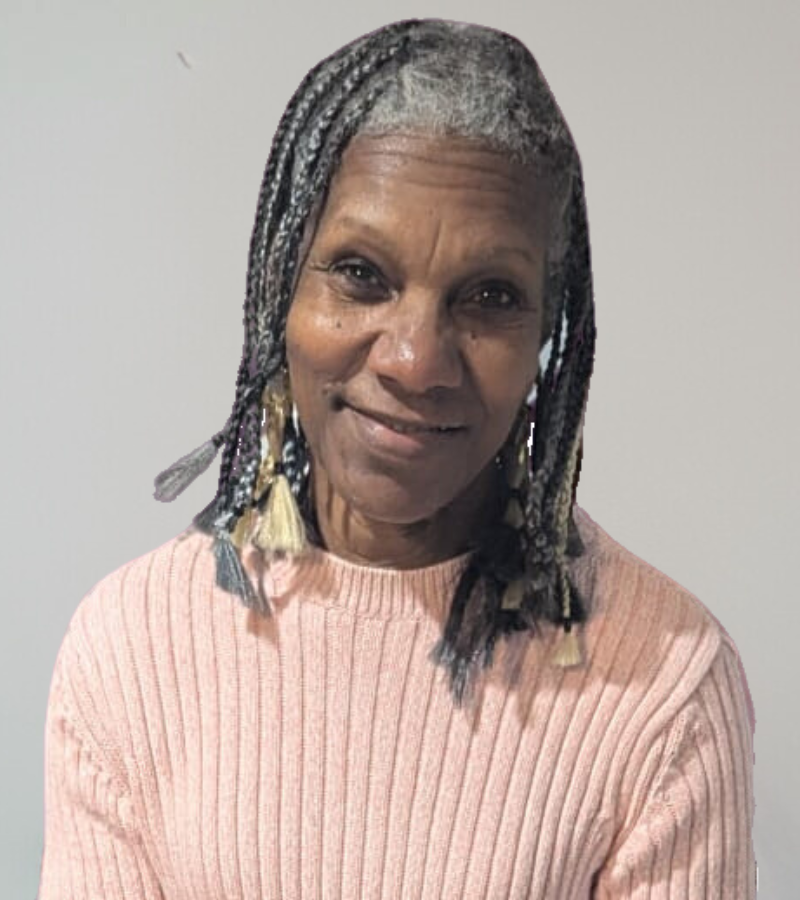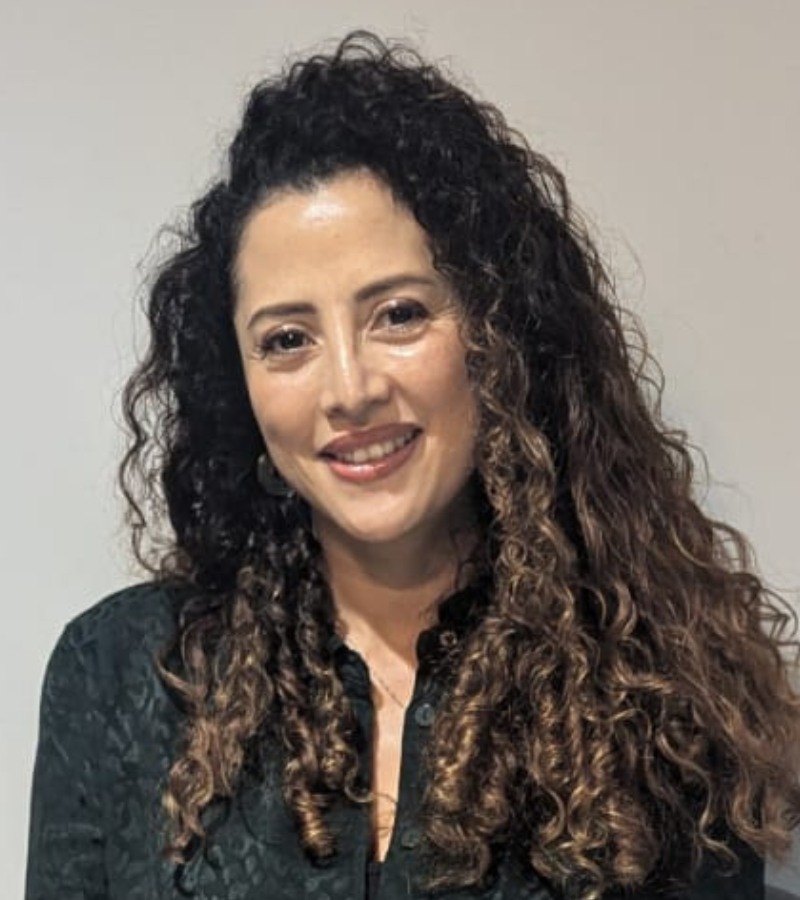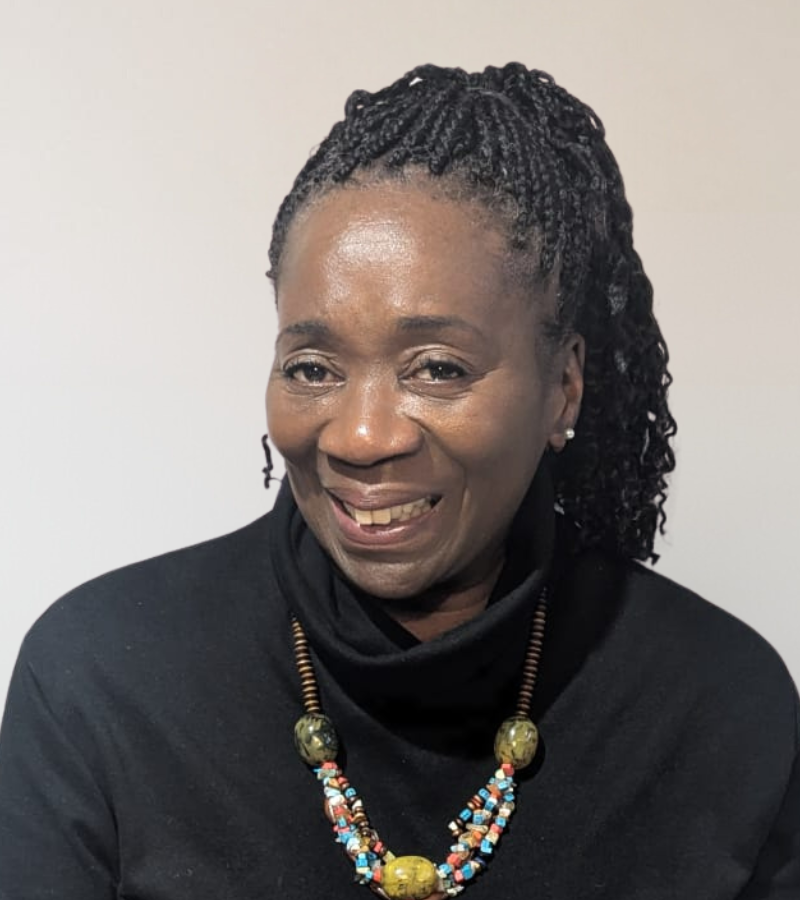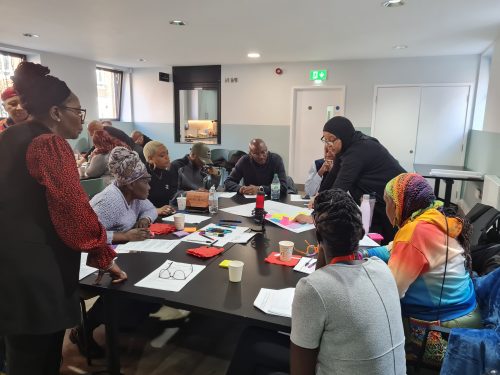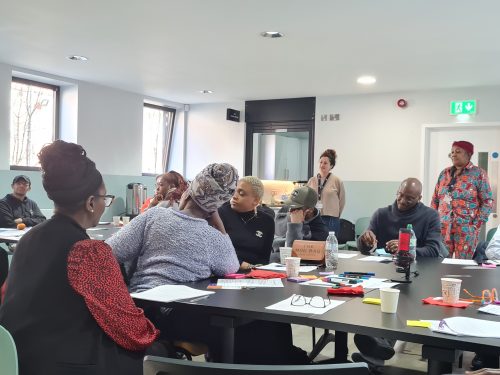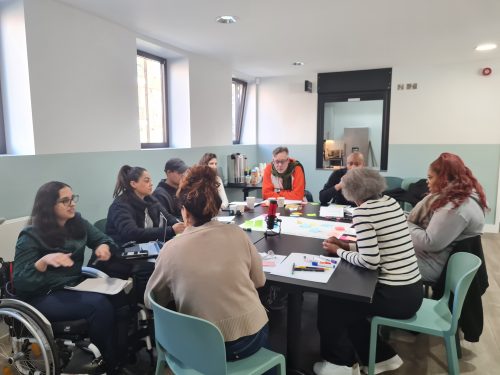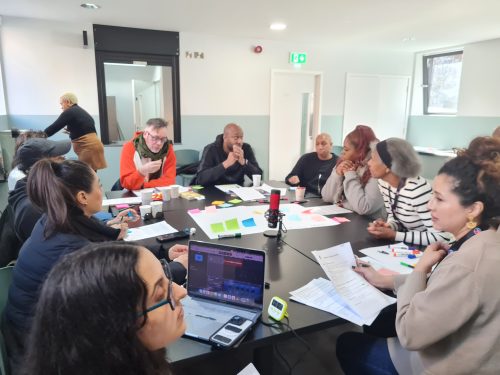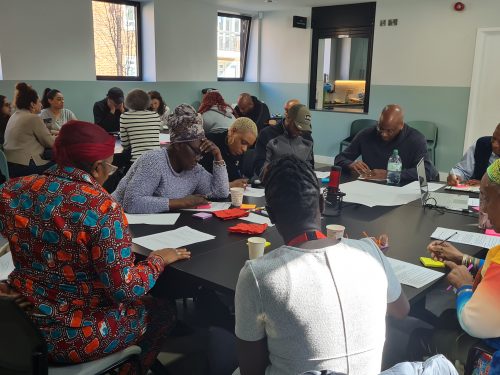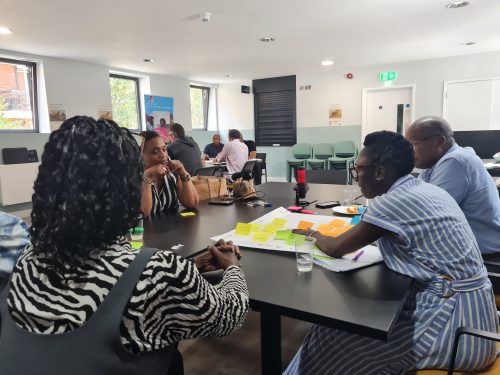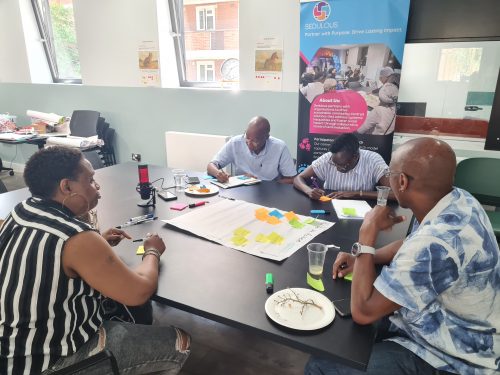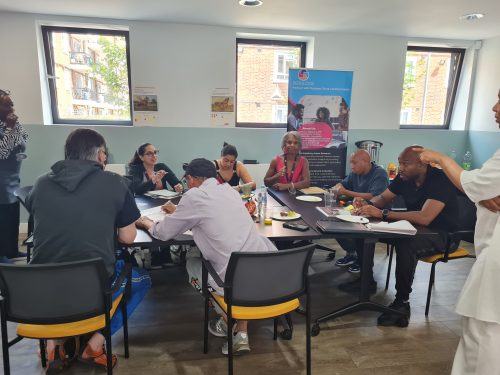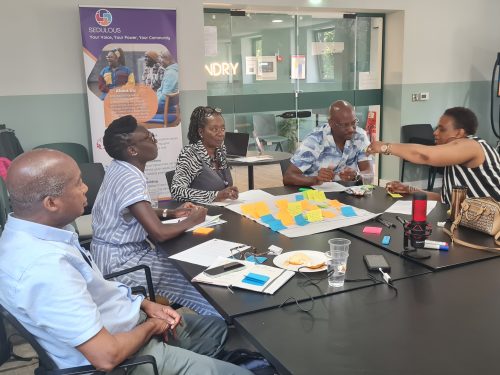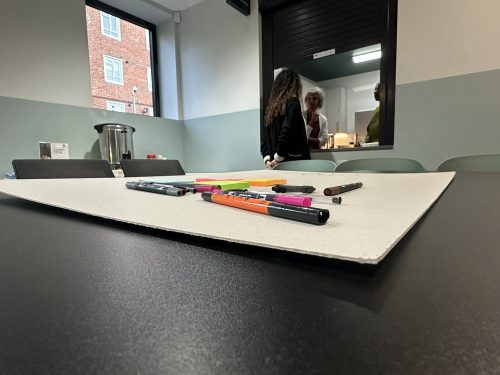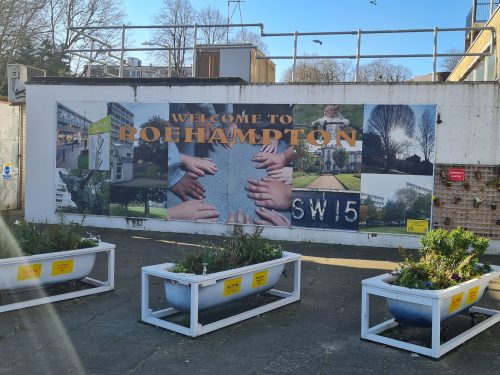Methods & Approach
Sedulous is conducting a systematic review and narrative synthesis of peer-reviewed and grey-literature studies published since 2010. The work is led by Sedulous’ research team in collaboration with Dr Brenda Hayanga (City, University of London – St George’s), who provides methodological guidance on search strategy, screening, critical appraisal and synthesis. Searches span multidisciplinary databases (e.g., PubMed, Scopus, Google Scholar) and community archives to capture both academic and practice-based evidence on community-centred qualitative, participatory and creative methods.
Running in parallel to the desk-based review, we hold regular workshops with a cohort of lived-experience co-researchers. These sessions surface first-hand perspectives on where traditional research creates barriers and invite participants to re-imagine what inclusive, equitable and non-extractive practice could look like in real-world projects. Insights from the workshops are logged in a reflexive journal and will be integrated with the literature findings to shape the structure, language and practical tools of the forthcoming Sedulous Toolkit & Training Programme.
By combining rigorous evidence synthesis with participatory inquiry, this mixed approach ensures the final outputs are both academically robust and grounded in community realities.
